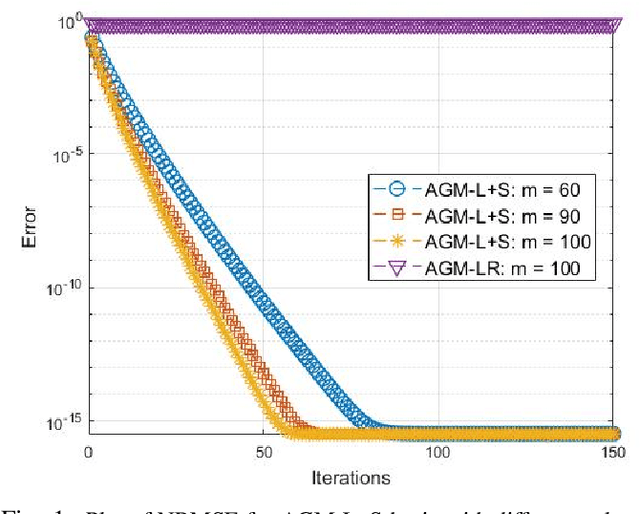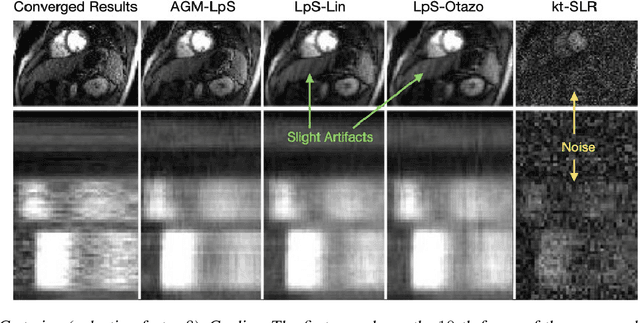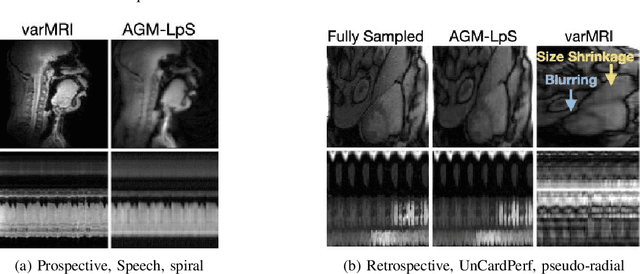Few Shot Alternating GD and Minimization for Generalizable Real-Time MRI
Paper and Code
Feb 26, 2025



This work introduces a novel near real-time (real-time after an initial short delay) MRI solution that handles motion well and is generalizable. Here, real-time means the algorithm works well on a highly accelerated scan, is zero-latency (reconstructs a new frame as soon as MRI data for it arrives), and is fast enough, i.e., the time taken to process a frame is comparable to the scan time per frame or lesser. We demonstrate its generalizability through experiments on 6 prospective datasets and 17 retrospective datasets that span multiple different applications -- speech larynx imaging, brain, ungated cardiac perfusion, cardiac cine, cardiac OCMR, abdomen; sampling schemes -- Cartesian, pseudo-radial, radial, spiral; and sampling rates -- ranging from 6x to 4 radial lines per frame. Comparisons with a large number of existing real-time and batch methods, including unsupervised and supervised deep learning methods, show the power and speed of our approach.
 Add to Chrome
Add to Chrome Add to Firefox
Add to Firefox Add to Edge
Add to Edge